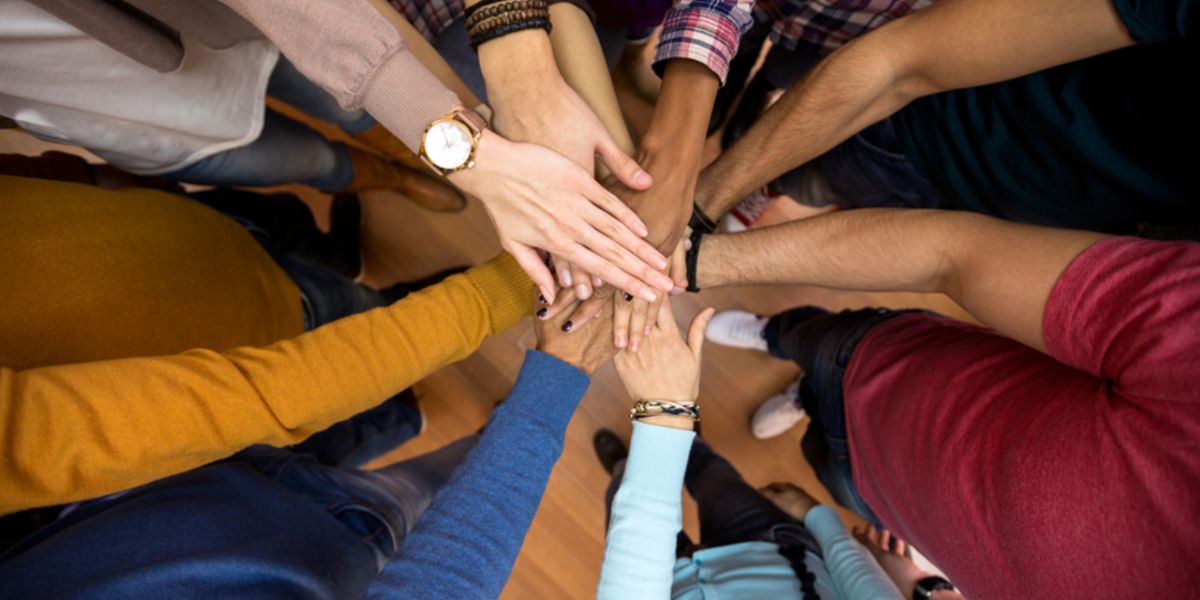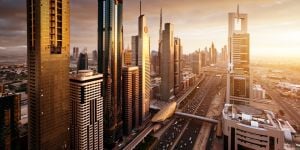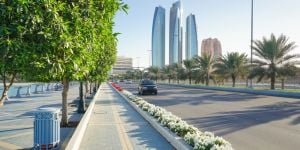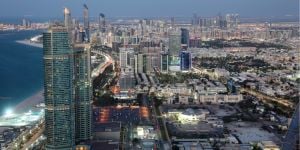
Situated on the southeastern corner of the Arabian Peninsula, the UAE is home to a population of over 200 nationalities — over 80% of which are expatriates. As a melting pot of diverse cultures, the UAE has become a pioneer of inclusivity and coexistence. The country welcomes and embraces its expatriate population by creating a society where individuals can thrive and truly belong.
Diversity and tolerance in the UAE
The UAE has developed and grown into a country that promotes and encourages tolerance and inclusivity of different cultures. This has attracted a large number of expatriates to its buzzing cities, where they can build their lives and settle into a flourishing place that they can call home.
With a total population of approximately 10.17 million, below is a view of the expat population in the UAE:
- India – 2.8 million;
- Paksitan – 1.29 million;
- Bangladesh – 0.79 million;
- the Philippines – 0.57 million;
- Iran – 0.48 million;
- Egypt – 0.43 million;
- Nepal – 0.32 million;
- Sri Lanka – 0.32 million;
- China – 0.22 million;
- Other – 1.82 million.
Hosting such a large number of people from different backgrounds and cultures, the UAE has cemented its position on discrimination through its Anti-Discrimination / Anti-Hatred law. This law was created to provide safety and security for individuals and groups of every religion, caste, doctrine, race, color, or ethnicity.
While the majority of the UAE's local and expatriate population are extremely tolerant and welcoming, the law protects people from the few who are not.
Gender equality in the UAE
Under the Constitution of the UAE, women enjoy the same rights as men, such as legal status, claims to titles, access to education, and the right to inherit property.
Among the many steps the UAE has taken to promote inclusivity is the establishment of the UAE Gender Balance Council. This council has been proactively tackling gender equality through several initiatives, such as creating a “Gender Balance Guide” to help organizations create spaces that empower both women and men, “Gender Balance Workshops” to raise awareness on gender sensitivity, and more.
Making up around 31% of the UAE's population, the UAE labor law protects women in the workplace through articles that prohibit the termination of female employees due to pregnancy and the right to equal pay for equal work.
The World Economic Forum's Global Gender Gap report for 2023 has ranked UAE first among other Arab countries.
Women in leadership roles in the UAE
Over the past few years, the UAE has made significant steps forward to ensure that women have a strong presence in both political and diplomatic roles.
There are currently nine women serving as ministers in the UAE government and 234 women occupying positions in its diplomatic corps.
Outside of the political space, the UAE has empowered women in business by guaranteeing equal opportunity. They had the highest number of women on Forbes' 100 Most Powerful Arab Businesswomen in 2023, with 15 Emirati women on the list.
Some notable women in leadership roles include:
- Sheikha Lubna Al Qasimi - The UAE's first female minister and former Minister of Tolerance;
- Reem Al Hashimy - UAE Minister of State for International Cooperation and CEO of Expo City;
- Lana Zaki Nusseibeh - UAE Permanent Representative to the United Nations;
- Noura Al Kaabi - Minister of State for Foreign Affairs.
Religious diversity in the UAE
While the UAE's official religion is Islam, it prides itself in its tolerance of all religious beliefs. The country is home to a large number of places of worship, including 40 churches, three synagogues, three Hindu temples, a Sikh temple, and a Buddhist temple.
The Abrahamic Family House, which encompasses a mosque, a church, and a synagogue, was established in Abu Dhabi as a forum for people to gather, learn, and discuss their different faiths with the aim of encouraging mutual understanding and acceptance.
Celebrations of major holidays, such as Christmas, Diwali, and Chinese New Year, are accepted and widely publicized across the country, encouraging everyone to partake in the festivities.
The UAE provides for freedom of worship for all its residents; however, it is important to note that respect for Islam and the country's public policy and morals is expected. This is also reflected in specific laws the country has against blasphemy, proselytizing by non-Muslims, and Muslims converting from Islam.
Workplace inclusion in the UAE
As most expats are drawn to the UAE for work opportunities, ensuring inclusive working environments across the country is paramount. This is supported by Article 4 of the UAE Labour Law, which prohibits forced labor and discrimination on the basis of gender, race, color, sex, religion, national/social origin, or disability.
This has encouraged a large majority of businesses in the UAE to adopt diversity initiatives, which give access and opportunities to jobs for people from vastly different backgrounds. These initiatives also promote tolerance and inclusivity within the workplace to ensure proper representation for everyone.
LGBTQIA+ rights in the UAE
Being an Islamic country, the LGBTQIA+ community can face legal challenges in the UAE. Though the surrounding laws are vague and ambiguous, any public display of same-sex relationships can be punishable.
Despite this, tolerance amongst the general population varies from emirate to emirate. You will find that Dubai and Abu Dhabi are more tolerant, for example than Sharjah (which is considered more conservative).
While there haven't been arrests or prosecutions over the past 8 years, the LGBTQ community should remain cautious and mindful of how open they can be depending on the spaces they are in.
That being said, it is expected that pride is not publicly celebrated in the UAE, and parades are prohibited without proper licensing from the relevant authorities.
People of determination in the UAE
At the forefront of inclusivity for people with disabilities, the UAE aptly refers to them as People of Determination, and advocates for their equal opportunities both in society and the workplace.
A multitude of services and facilities are provided to ensure the protection and empowerment of people of determination when it comes to education, health, jobs and more.
The country has also ensured proper accessibility for people of determination throughout its airports and public transportation by providing lifts, dedicated check-in areas and accessible washrooms in airports, dedicated areas on trains for wheelchairs, and specially equipped taxis and buses.
The majority of sidewalks and buildings across the country also include ramps, although there are a few areas that could be improved.
The Golden Visa in the UAE
To further foster a sense of belonging and stability for its expatriate population, the UAE has introduced its “Golden Visa”.
The Golden Visa provides long-term residency options for foreign talents such as investors, entrepreneurs, outstanding students, humanitarian pioneers, and frontline heroes. It provides a number of benefits, such as:
- A renewable residency visa valid for 5 or 10 years;
- Not requiring a sponsor for your residency visa;
- The ability to leave the country for extended periods of time without jeopardizing the visa's validity;
- The ability to sponsor family members and bring them into the UAE.
By making the diversity of cultures and religions a main factor of society's strength and enrichment, the UAE has been globally recognized as a leading country for diversity and inclusion and is a place that many can truly call home.
Useful links:
We do our best to provide accurate and up to date information. However, if you have noticed any inaccuracies in this article, please let us know in the comments section below.








